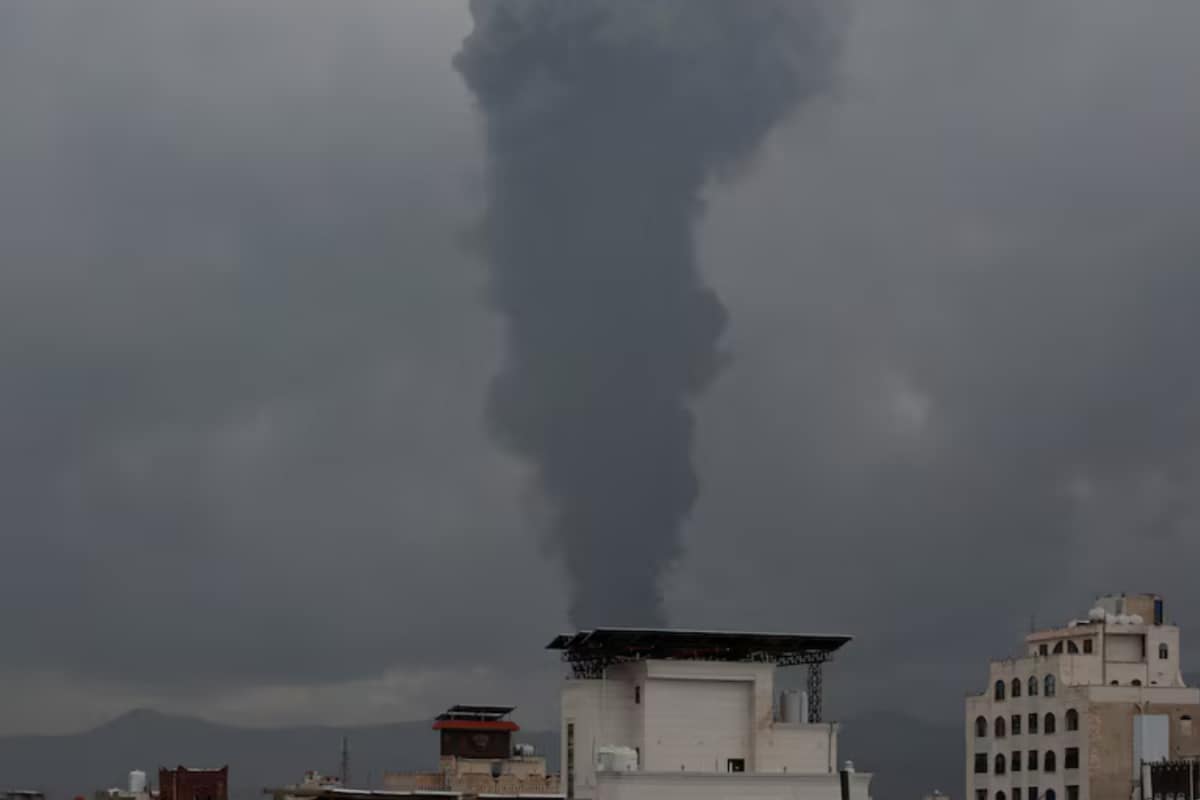Houthi Rebels Allege Israeli Intervention in Yemen Conflict
International International NewsPosted by AI on 2025-09-10 15:27:29 | Last Updated by AI on 2025-09-10 18:37:30
Share: Facebook | Twitter | Whatsapp | Linkedin Visits: 0

Recently, Yemen's Houthi rebels claimed that Israeli air strikes had hit the capital city of Sanaa. Understandably, this controversial allegation towards Israeli intervention has sparked intense debate and shed light on the complexities of the Yemen conflict.
The reported explosions in Sanaa on January 28 initially seemed like a false alarm, as tensions between the Iranian-backed Houthi rebels and the Saudi-led coalition fighting them have long been fraught with violence. However, when the Houthis broadcast images of the purported aftermath of the strikes on their television channel, the allegations gained credibility. The footage displayed damaged vehicles and buildings, with Houthi officials claiming that the Israeli strikes had targeted a military base.
The Saudi-led coalition, the Israeli government, and the United States have all remained silent regarding the allegations. This silence has only intensified the focus on the potential involvement of Israel, a country that has maintained a policy of deliberate ambiguity regarding its activities in the region.
The alleged Israeli strikes have understandably caused a stir, with many questioning the potential implications of such involvement. Some argue that Israel could be taking a more proactive approach to counter Iran's influence in the region. Others believe that Israel may be collaborating with the Saudi-led coalition to undermine the Houthis, potentially signaling a shift in alliances.
As this story continues to develop, it is important to approach the allegations with caution, mindful of how conflicts can be exacerbated by the involvement of external actors. With all parties involved remaining tight-lipped, the truth behind the strikes and potential Israeli involvement may never be fully revealed to the public.
It's worth remembering that the people of Yemen continue to endure a devastating conflict that has caused immense suffering and upheaval. Ultimately, the country desperately needs a resolution that prioritizes long-overdue peace and stability.
Search
Categories
- Sports
- Business
- National
- Investments
- History
- Politics
- International
- Science & Technology
- Social Issues
- Disaster Management
- Current Affairs
- Events & Jobs
- మన పార్టీ
- మన నాయకత్వం
- మన విజయాలు
- డౌన్లోడ్స్
- మీడియా వనరులు
- కార్యకర్తలు
- రాజకీయం
- బిజినెస్
- సంపాదకీయం
- నవ్య
- చిత్ర జ్యోతి
- క్రీడలు
- జాతీయం
- తెలంగాణ
- తాజా వార్తలు
- Fast Check
- South
- Gallery
- Sunday Chronicle
- Hyderabad Chronicle
- Technology & Innovation
- Innovations and Initiatives
- బిజినెస్
- North East Skill Center News
- Government Schemes
- Entrepreneurship Support
- Employment Opportunities
- Skill Training Programs
- Education
- Startup Business
- Startup News
- Awards
- Community Services
- Fundraising Events
- Volunteer Services
- Health Initiatives
- సినిమా
- లైఫ్ స్టైల్
- క్రైం
- ట్రెండింగ్
- జాబ్స్
- అంతర్జాతీయo
- Market Buzz
- Awards
- Partners
- Products
- Press Releases
- News
- Departments
- Initiatives
- Resources
- Telangana IT Parks
- Press Releases
- News
- Airport News
- Sports
- Business
- Newtons Laws of Motion
- Karbonn in Business
- Investments in Karbonn
- Company quarterly sales
- Markets
- Auto News
- Industry
- Money
- Advertisements
- Stock target
- Company Updates
- Stock Market
- Company Sales
- Staffing and HR
- Constituency Assembly
- General News
- Srikalahasti Temple
- Bojjala Sudhir Reddy
- Products
- Industries
- Services & Trainings
- Tools & Resources
- Technology Integration
- Drug Seizures & Arrests
- Telangana Narcotics
- Law & Enforcement
- Rehabilitation
- Nationwide Drug Policing
- Nigeria Seizures
- Global Operations
- Drug Awareness
- Drug Enforcement Tech
- NCB Drug Seizures
- Judicial Crackdown
- India's Surveillance Tools
- Cross-Border Links
- Women Safety
- Cyber Crimes
- Drug Abuse
- Traffic & Road Safety
- Community Connect
- Public Safety Alerts
- Citizen Assistance
- Nellore City News
- Politics & Administration
- Events & Festivals
- Agriculture & Rural
- Business & Economy
- Health & Wellness
Recent News
- Certain troubles for the fisherfolk
- ECI Convenes Third CEOs' Conference To Review Nationwide SIR Preparedness
- Murder in the streets
- Prince Harry Reunites With The Royal Family Amid King Charles' Health Concerns
- India's Crypto Decision Results in Legitimacy vs Systemic Risks
- MP calls attention to government's good work
- Brinda Karat Urges Stalin and Centre to Combat Caste Crimes
- Gracious Guide: Finding a Hospital in Nellore, Starting with Alphabet G